The Division of Public Health Sciences makes it a priority to share its disease prevention and health communication research findings with the public. This dedication to community engagement has resulted in several platforms to keep people and communities in the St. Louis region and beyond aware of ways they can stay healthy and prevent disease.
Faculty are continuing to share the latest research with community members through some of the below avenues:
- Program for the Elimination of Cancer Disparities (PECaD)
- Your Disease Risk
- Siteman Cancer Center Mammography Van
- 8ight Ways to Reduce Cancer Risk Brochure Series (breast, colon, survivor, healthy weight, general health)
- MindsEye Radio “Health Beyond Barriers” Podcasts
- Cancer News in Context
Community Engagement Projects

CER of Encounter Decision Aids for Early-Stage Breast Cancer
Faculty involved: Mary Politi
As a co-investigator on the PCORI grant and PI of the subaward from Dartmouth College, Dr. Politi aims to support women of low socioeconomic status through early-stage breast cancer treatment decisions by providing patients with point-of-care decision aids.
Communicating Multiple Disease Risks
Faculty involved: Erika Waters, PhD, MPH
This study, Communicating Multiple Disease Risks: A Translation of Risk Prediction Science, translates epidemiological data about five major health consequences of insufficient physical activity into a visual display that conveys individualized risk estimates in a way that is understandable and meaningful to diverse lay audiences and motivates physical activity behavior.
Community Engagement in Research
Faculty involved: Mary Politi, Bettina Drake, Esther Lu, Aimee James, Jean Hunleth, Erika Waters, PhD, MPH, Vetta Sanders Thompson, Graham Colditz
This line of research strives to engage all members of the community throughout the research process to help navigate the healthcare process.
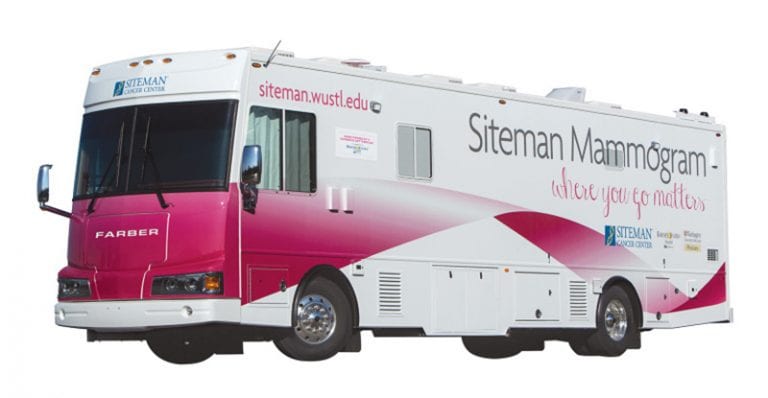
Community Outreach: Mobile Mammography Van
Faculty involved: Bettina Drake, Graham Colditz, Su-Hsin Chang
This project worked towards increasing and providing effective mammography screening for women in the St. Louis area.
Dietary Habits in Rural Guatemala Adolescent Women
Faculty involved: Yikyung Park
This project addresses poor dietary and physical activity habits in rural Guatemalan adolescent women.
Disparities in Adherence to Adjuvant Therapy for DCIS and Outcomes
Faculty involved: Ying Liu
Ying Liu, MD, PhD, assistant professor of surgery, has received a three-year, research scholar grant from the American Cancer Society to study disparities associated wtih ductal carcinoma in situ (DCIS).
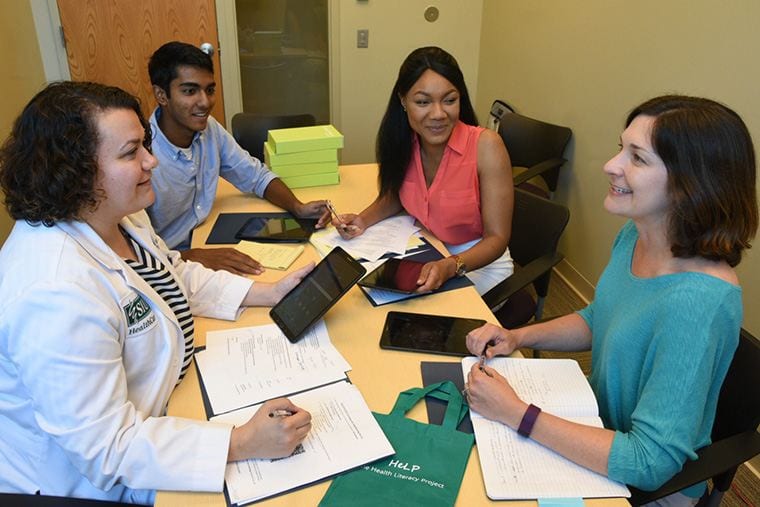
Health Literacy in the Context of Kidney Cancer & Smoking
Faculty involved: Erin Linnenbringer
This pilot project examined health literacy in the context of kidney cancer and smoking among rural populations in southern and central Illinois.
Improving Rural Colon Cancer Screening
Faculty involved: Aimee James, Esther Lu, Graham Colditz, Jean Hunleth
This project will address colorectal cancer mortality rates in rural Southern Illinois by improving the screening process and follow-up for patients who have a positive fecal blood test (FOBT, FIT).
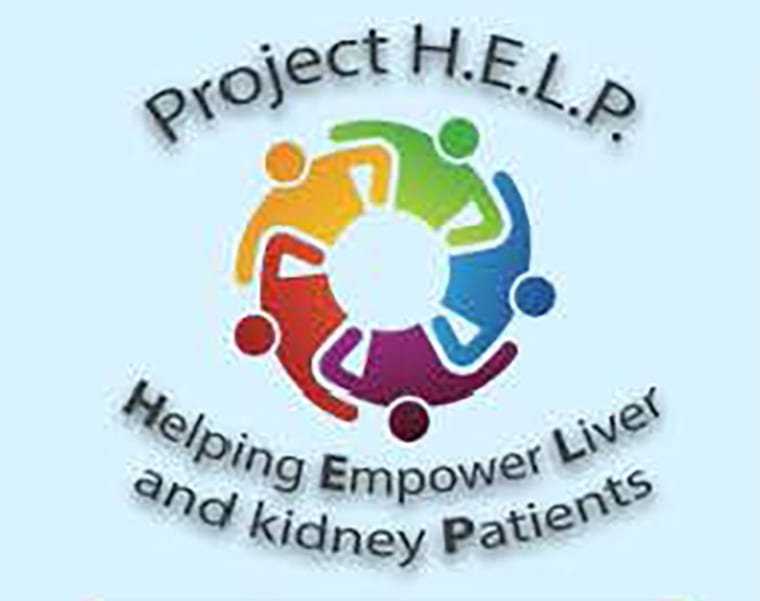
Informing Kidney Patients of Treatment Options
Faculty involved: Mary Politi
This project will develop tailored, patient-centered education materials to facilitate treatment decisions in patients with Hepatitis C infection and chronic kidney disease.
Mixed Methods Analysis of Interdistrict School Transfer Program
Faculty involved: Erin Linnenbringer
This one-year pilot study explores potential health impacts – both positive and negative – among children currently participating in the St. Louis’ Voluntary Interdistrict Choice Corporation school transfer program.
Optimizing Decision-Making about Breast Reconstruction after Mastectomy
Faculty involved: Mary Politi
This project will develop a preference-sensitive decision support tool for patients considering breast reconstruction after mastectomy. The tool will provide patient education, elicit patients’ preferences, and include personalized risk prediction to aid in the decision making process.

Patient Research Advisory Board
Faculty involved: Vetta Thompson Sanders
The St. Louis Patient Research Advisory Board was founded by and consists of CRFT program alumni who have completed a 15-week training program on research methods and are certified to conduct research with human subjects by the Human Research Protections Office at the Washington University School of Medicine. The PRAB is designed to help investigators with community-engaged or community-based research proposals/projects by having community members review proposals and give feedback.

Prevention of Lower Urinary Tract Symptoms (PLUS) Research Network
Faculty involved: Aimee James, Siobhan Sutcliffe
The PLUS Research Network is a multi-site network designed to develop the evidence base for future clinical trials to prevent the development and progression of lower urinary tract symptoms in women and girls. Current projects include a qualitative focus group study, the development of new instruments to measure bladder health, systematic reviews of the literature, and analyses of existing study data to better understand bladder health and factors that contribute to the development and progression of lower urinary tract symptoms.
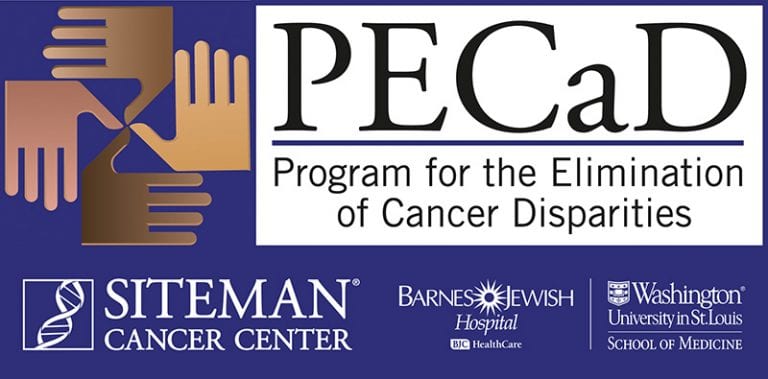
Program for the Elimination of Cancer Disparities (PECaD)
Faculty involved: Graham Colditz, Aimee James, Bettina Drake, Vetta Sanders Thompson
The mission of Siteman Cancer Center’s Program for the Elimination of Cancer Disparities (PECaD) is to create a national model for eliminating local and regional disparities in cancer education, prevention and treatment. Through a community advisory committee and community partnerships, PECaD works with community representatives to find solutions that reduce disparities.
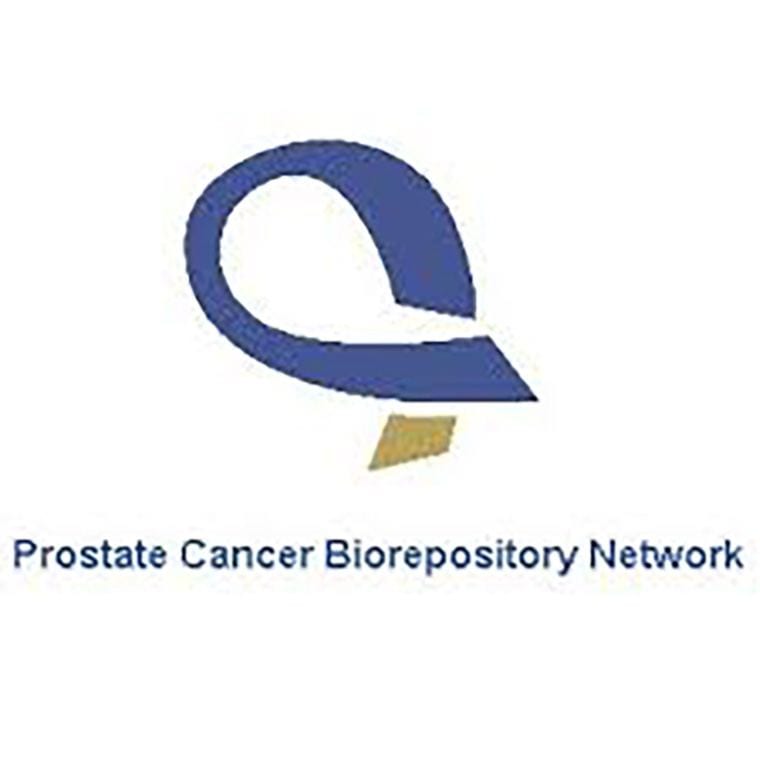
Prostate Cancer Biorepository Network
Faculty involved: Bettina Drake
The Prostate Cancer Biorepository Network (PCBN) is a Department of Defense (DOD)/ Congressionally Directed Medical Research Program (CDMRP) bioresource that provides tissue and other biospecimens to all prostate cancer investigators.
Prostate Cancer Prospective Cohort
Faculty involved: Bettina Drake, Graham Colditz
The long-term goal of this collaboration between Dr. Drake and The St. Louis Mens Group Against Cancer is to be able to identify patients with increased risk for dying of prostate cancer while they are still treatable.
Supporting Cancer Patients Health Insurance Decisions
Faculty involved: Mary Politi, Aimee James, Esther Lu, Jean Hunleth
The goal of this grant from the American Cancer Society is to help cancer patients and survivors choose health insurance plans that best meet their health and financial needs. An existing decision support tool will be tailored based on patient interview data, and the modified tool will be evaluated with a 3-arm randomized trial.

Supporting Decisions About Cancer Clinical Trials in Rural Cancer Centers
Faculty involved: Mary Politi
This project will bring evidence-based decision tools to rural communities and attempt to support rural cancer patients’ participation in clinical trials.
The New Face of Homelessness: A CRFT Project
Faculty involved: Vetta Sanders Thompson
Alumni of the first Community Research Fellows Training (CRFT) program created this project, which focused on identifying the health needs and concerns of homeless women ages 45-64 living in the St. Louis metropolitan area.
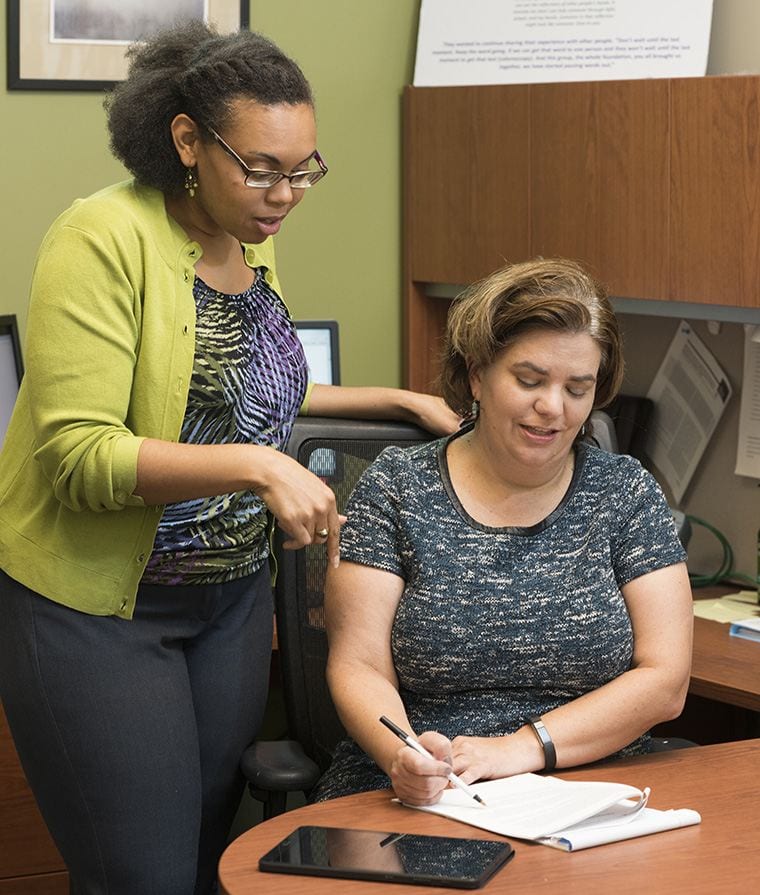
Understanding & Addressing Cost Related Nonadherence to Medication
Faculty involved: Aimee James
Nonadherence can have significant negative health effects for the individual and contribute to increases in hospitalization, healthcare costs, and mortality. Adherence is a complex issue, but cost and affordability of medication is a common and critical barrier.The short-term objective is to identify how patients and healthcare providers approach affordability and adherence and use those data to refine and pilot test an intervention promoting patient-provider discussion about cost, affordability, and adherence. The long- term objective is to deliver interventions to reduce cost-related nonadherence.
Unemployment and Mental Health Literacy: A CRFT Project
Faculty involved: Vetta Sanders Thompson
This CRFT Alumni project, Unemployment and Mental Health Literacy among African American Mothers in St. Louis County, examined levels of stress experienced by unemployed African American mothers and whether educational materials about the effects of stress related to unemployment improved their recognition of stress, stress management and knowledge of when to seek services.